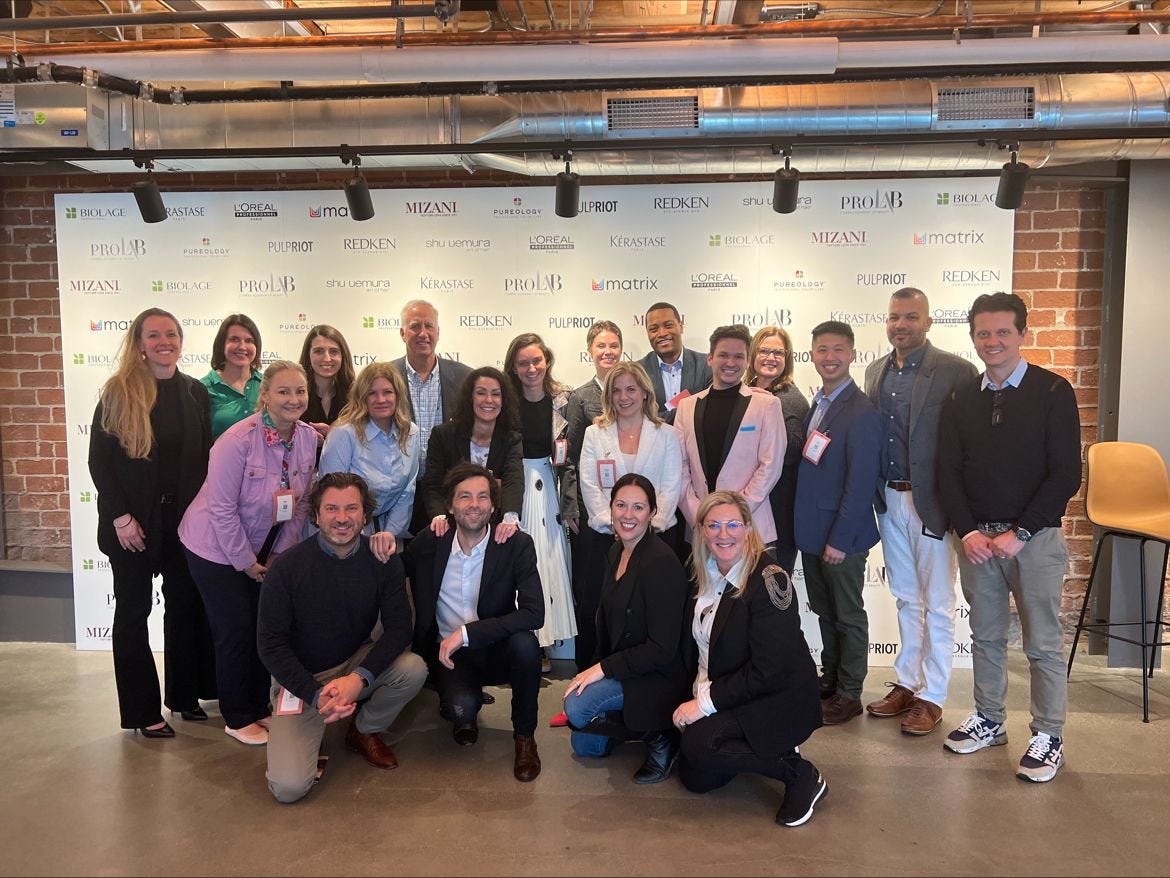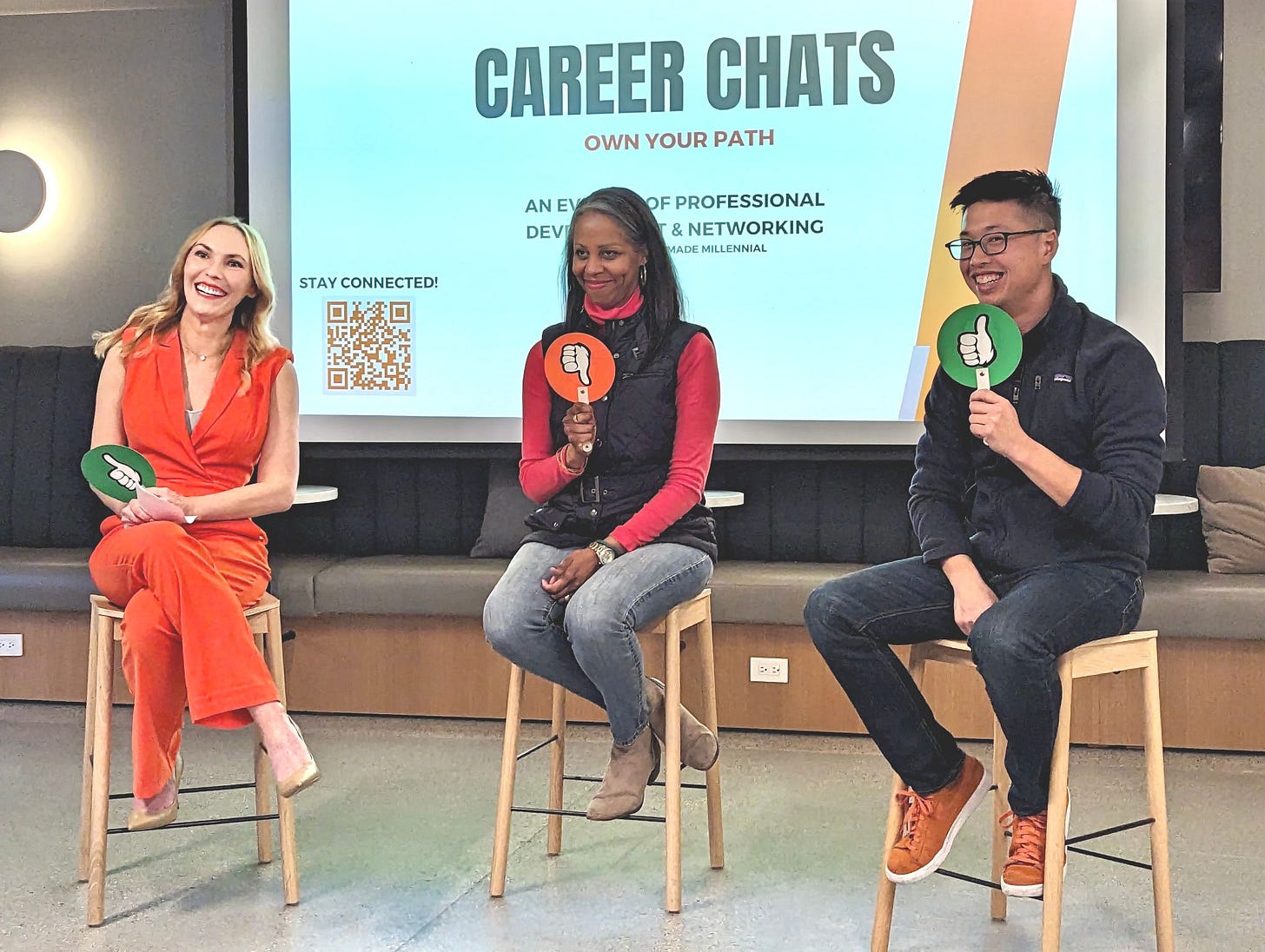The Link Between Social Capital and Career Development
How Managers Play a Role in Facilitating Career Development For Their Employees
Hello, and welcome to this week’s newsletter. Thank you to our new subscribers. If you’re new, drop me a line and tell me what you are working on these days
This Week’s Newsletter:
Social Capital and Career Development
What I’m Following
My Work Updates
Social Capital and Career Development
When I started my first job out of college as a management consultant, I had one small problem. I didn’t know how to do anything.
I say that in gest, although, at any given moment during the majority of the first few years in the working world and at the firm, it really felt that it was true. There were so many little things that you don’t know because you don’t have the context for it without having experienced it previously. And for those who are early in their career and joining the workforce for the first time, it’s doubled by the fact that you don’t really know what’s going on in the context of your company, and you also don’t know in the context of being in the workplace for the first time.
But over time, I started to figure some things out. I realized that, for many of the things I didn’t know, there were other people that at one point in time, didn’t know them as well, and they often could be great places to go to figure things out.
I also began to realize that a lot of other people didn’t know things and they were still successful at the firm. When I found out why, it was inherently in the world of management consulting, you’re paid not for what you know but what you can figure out and solve.
And finally, I also figured out, in a massive, global knowledge worker organization, you didn’t have to know everything. Oftentimes, simply knowing the people, the resources, the process for how things get done, or who to go to when you don’t know something yields just as good of an outcome as actually knowing the thing.
But what hinders people in organizations and organizations at large, is not what they don’t know, but rather, the unknown, unknowns, or “when you don’t know what you don’t know.” This is especially true when it comes to how things actually get done in the workplace as well as with any type of career development and advancement.
When you don’t know that you’re supposed to advocate for yourself, talk to your manager about your career goals, your career stalls. When you don’t know the specific norms in your company for asking for budget or making a case for more headcount when HR tells you no, it’s hard to grow your team. And when you don’t know that certain leaders are the ones who make the decisions for who gets nominated for the high potential leadership development program (or that one exists) you get shut out from opportunities that could grow your career.
So many things in the modern workplace get held back not for lack of skill, but rather, the knowledge, resources, connections and people who can enable that opportunity to happen. And that’s why social capital is so important.
Social capital is the networks, relationships and connections that exist within a company or more broadly a system. This set of norms, ways of working and relationships is what enables work to get done, and allows for people to work together.
The reason why I think this is critical in the career development topic is because so much of our learning and growth depends on us getting help with, supported by, or enabled by others.
This is also why while I think each individual has advocate for themselves, without the support of others managers, leaders, people in positions who have social capital and the broader system, you really do need others to help you gain the social capital you need to be effective or advance.
The degree of which you have social capital, and that others (especially formal leaders or managers) can help you with it enables you to gain the experiences, exposure, and expertise you need to advance toward your career goals.
If you talk to most “successful” people in their careers, they will readily tell you about the people they met or the opportunities they got that they had no control or influence over, but came to them through the help of someone else.
This doesn’t reflect on their abilities, but rather, the acknowledgement that as much as individual drive, work ethic and taking responsibility matters, advancing in your career in a world much bigger than yourself and in set of complex system that you didn’t create means there are far more things outside of your control than within it.
The Role of Social Capital in Career Development
Last year, I wrote a piece about McKinsey’s study on social capital and how it was waning during the pandemic, especially for those who are not in positions of power or privilege. When people aren’t getting the relationships, norms, and knowledge that help them connect and engage with the broader system, it can hinder them as well as the organization. It can be easy to say that this just means that employees need to work harder, make more connections, or take ownership of their career. And all of that has a place.
But the reality is that while that may work for some people (a lot of time who already have social capital) it excludes a wide array of professionals who may not have social capital either due to their background and upbringing, or because of the nature of the systems that they step into were just not made for them.
A few weeks ago, Matthew Daniel, (A guest from Season 2 of The Edge of Work) had a great Linkedin post and article about the limitations of the message that employees and professionals are responsible for their own career development and growth. He writes:
In Guild Education’s American Worker Survey, about half of all workers (47 percent) say that not having the right experience, the right education or access to training programs has held back their careers, but this is even higher for Black workers (51 percent) and is much higher for Hispanic workers (60 percent).
Here’s the problem: The philosophy of “owning your own development” assumes that every employee has the same understanding of how to do it. But the truth is that all employees are not on an equal footing. There are folks in your organization who want to grow, they just don’t know how to start. They also might not know what is most tangibly linked to the next job. Or which program can help them navigate a complex schedule.”
Since organizations are just a bunch of people working toward shared goals, as a manager or leader, ensuring that your employees have the social capital they need to advance in their careers is actually in your best interests.
So how do you as a manager or leader who wants to take an active role in their career development of your employees, help them get the social capital they need? I’ve developed a light framework that I use when I teach this in my courses which I think could be a good place to start:
Relationships – Making sure that your employees have relationships with other key people they need to be successful, such as a key stakeholder, or other key leaders in your organization
Opportunities – Getting them onto the playing field and into the game. Oftentimes, they cannot do this on their own, and with your support and advocacy, they can showcase the talents they have, but only when they can get the chance.
Exposure – When you’re employees are doing great work but it’s not getting heard, being their “megaphone” and hype-person can often scale the impact of their work and improve their visibility for other opportunities
Resources – It might be budget, could be headcount or simply just a simple approval, but getting the resources to do their jobs more effectively can be what the doctor ordered.
In some respects, these are the everyday things that your employees need to know to navigate and succeed in the workplace, like my friend and Career Expert Gorick Ng calls “The Unspoken Rules.” In other cases, these are actual access to resources to get things done, or connections and relationships. And in some cases, it also requires you, as a manager or leader, to use some of your social capital to help lend credibility to help your employee get what they need.
Helping your employees build the social capital they need helps your employees grow their careers, but also helps create more of an equitable workplace, where people get the support they need to contribute in a way that fuels organizational goals, as well as individual advancement and career mobility, which in today’s workplace, is what employees desire for their careers.
I have always said that I’ve come to view managing your career like a team sport, not an individual one. Much of that stems from my early days in my career where people helped me spot my unknown unknowns, and gave me the social capital that I needed to advance in my career.
What I’m Following
Article It’s Time To Discuss The Problem With Owning Your Development (Chief Learning Officer) - This is the piece I referenced above from Matthew Daniel, which goes into greater depth of some of the research he and his team at Guild Education did on career mobility for frontline workers.
Article: Short Staffed Hotels Offer Career Growth to Hire Workers (WSJ) - Paying people fairly is necessary but insufficient. Employees are looking for more than just good pay and benefits, but real opportunities for growth in their career
Podcast: Career Mobility with Matthew Daniel (The Edge of Work Podcast) - This is my conversation with Matthew Daniel, where we talk way more in depth about career pathways and internal mobility.
Podcast: How Learning Fuels Innovation at Moderna (Noah Rabinowitz, VP Learning, Moderna) - I spoke this week with a former Deloitte colleague, Noah Rabinowitz. Noah is the VP of Learning and Development at Moderna, and we had a great conversation about how learning is a part of their culture, and how it feeds innovation and growth at the company.
My Updates
This past week was a busy week. I kicked off Week 1 of the LinkedIn Podcast Academy where I had a great time meeting the other podcasts and talking shop about aligning our LinkedIn content and newsletters to help grow our podcast. There are not a lot of great tools for growing a podcast organically, so I am excited to test out what Linkedin is building. More to come soon.
Additionally, I also got the chance to speak with the L’Oreal HR Leadership team about issues related to learning, developing managers and leaders, generational differences, hybrid work and more. The conversations were really interesting and thought provoking. It was great to see a team that was in the forming stages really start to take flight.
Finally, I spoke at Madeline Mann’s career and professional development event here in Los Angeles. It was great to meet and chat with people about their professional goals and to talk about leadership and career challenges. I got a ton of questions about onboarding into a new role, what to do when you don’t feel like you know what you’re doing (imposter syndrome) and how to demonstrate leadership when you don’t have a formal title.
PS - As a heads up, next week’s newsletter will come out on Thursday, March 30th.
Take care,
Al








